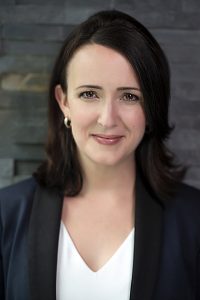Redefining Community in a Time of Crisis
Guest Column / Teresa Marques
As I’m writing this, the autumn colours are on full display, COVID-19 numbers are increasing, and more restrictions are being imposed in some parts of the country. For many of us, uncertainty and anxiety are on the rise.
We should take some solace in the fact that we’ve been here before. And while familiarity should not breed complacency, it helps renew a sense of purpose. We know what we need to do. We know we need to rely on each other in order to get through this second wave. That’s what we did in the spring as the trees were budding, and that’s what we’ll do again now as the leaves are falling.
In the first wave, we relied on families and friends—the people who were in close physical proximity and could be called upon to deliver groceries and maybe even a loaf of the sourdough bread that we were all baking. Local organizations stepped up to connect neighbours, seemingly overnight, creating networks of people who volunteered to help the more vulnerable residents in their areas. A myriad of videoconferencing and social networking platforms enabled all of us to stay connected.
We also proved to ourselves that we could find creative, innovative solutions that allowed us to support each other at a distance—whether that distance was 2 metres or 2,000 kilometres.
We, whether as individuals, community organizations or businesses, responded quickly. We identified the needs and we brainstormed to find ways to start to address them without delay. And then we shared: our stories, our ideas, our successes and our failures. So, a small idea in one corner of the country could be seized on by others.
In Vancouver, a group of volunteers came together to brainstorm ways of helping their neighbours who required assistance. Within the first half hour of launching an online fundraising campaign, Coming Together Vancouver had raised more than $11,000 to address ongoing inequalities in their neighbourhoods, and over 20,000 people had joined their online group. By early June, the group had distributed the $25-$100 survival funds to 380 individuals and families facing immediate financial needs. The group also matched needs for other types of assistance with offers of help at the local level, and they launched a website that contains lists of pandemic-related resources, including links to free online classes and services.
Their efforts went far beyond Vancouver. The group brought together technology professionals and community leaders to create an app that can be used by communities to manage volunteer connections in times of crisis (not just during the pandemic).
This is just one example of a small group of creative, innovative, compassionate people making a big impact in their community and beyond.
Conquer COVID is one of the most successful examples of Canadians coming together to collect PPE for frontline workers. Started in mid-March by six friends, this endeavour grew to 120 volunteers at its peak of operations, and it benefited from the contributions of some famous Canadians, including hockey Olympian Hayley Wickenheiser, actor Ryan Reynolds and NHL players.
By the time the group concluded its fundraising on September 2nd, it had raised $2.3 million and distributed three million items of PPE at 410 sites in eight provinces and one territory. Collection drives in six cities accounted for 773,000 items. In these cities, Conquer COVID partnered with local organizations, including Helping Alberta in Calgary, to distribute the collected items.
Conquer COVID also created a legacy that communities can access to help them prepare for the second wave of COVID and manage during other times of crisis. The Conquer COVID-19 Playbook provides guidance on how to establish a citizen-led response to a crisis and contains resources and tip sheets on everything from planning a funding drive to strategies for effective communications.
These are just some examples of Canadians coming together and leveraging their talents, ingenuity, knowledge and skills to help their neighbours. What did they have in common? They identified an immediate community need. They brought together a group of like-minded individuals with diverse strengths and skills. They had unwavering commitment to their cause. They were passionate about sharing their knowledge.
We can build on their examples and their legacy to help us through the months to come. We will not have to start from scratch. These community leaders, and so many others, have left us a roadmap.
Teresa Marques is the President and CEO of the Rideau Hall Foundation.

